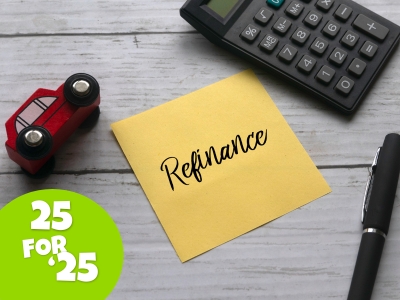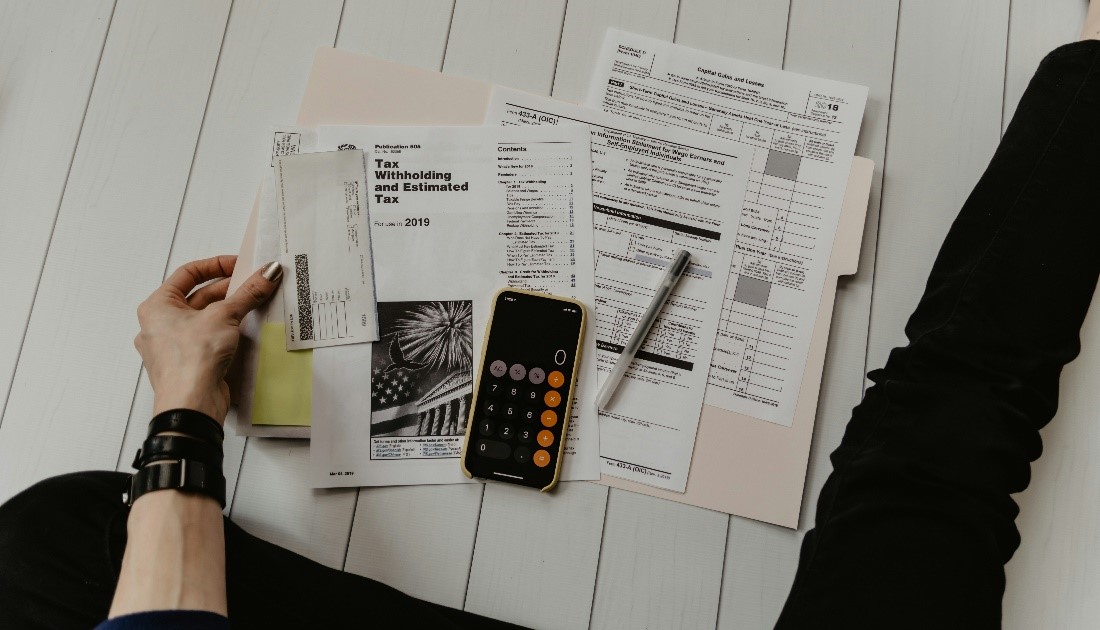A good credit score can open doors with lower interest rates, better loan approval odds, and more financial flexibility. Whether you're starting fresh or rebuilding, improving your credit takes patience, focus, and good habits. At 1st Community Credit Union, we believe everyone deserves the tools to strengthen their credit profile.

Here are key strategies to help you improve your credit score step by step.
1. Understand What Impacts Your Credit Score
Before making changes, know what lenders look at. The main factors influencing credit scores are:
- Payment History (on-time payments vs. missed/late ones) — typically the biggest portion.
- Amounts Owed / Credit Utilization — how much of your available credit you’re using. Keeping balances low helps.
- Length of Credit History — older, well-maintained accounts show long-term reliability.
- Credit Mix — a mix of credit types (credit cards, installment loans, etc.) can help.
- New Credit / Credit Inquiries — each time you apply for new credit, it may cause a “hard inquiry,” which can have a minor negative effect.
Knowing these helps you target the areas that matter most.
2. Check Your Credit Reports Regularly and Fix Errors
Get a copy of your credit reports from the three major credit bureaus (Equifax, Experian, TransUnion). You’re entitled to at least one free report annually via AnnualCreditReport.com.
Once you have your report:
- Review all entries carefully: account balances, payment history, open accounts, inquiries.
- Watch for mistakes or fraud: wrong balances, accounts that aren’t yours, or late payments incorrectly reported.
- If you see errors, file a dispute with the credit bureau(s) and the creditor involved. Correcting errors can sometimes lead to relatively fast improvements.
3. Pay Bills On Time — Always
Your payment history is often the most heavily weighted factor in credit scoring. Late or missed payments hurt, especially if they end up in collection. On-time payments over many months or years build solid credit.
Tips to keep up:
- Set up automatic payments or reminders.
- Prioritize paying off debts that are already late.
- If you’re struggling financially, reach out to creditors early—sometimes arrangements or forgiven late fees may be possible.
4. Keep Your Credit Utilization Low
Credit utilization refers to the percentage of your available revolving credit (credit cards, lines of credit) that you are using. For example: if you have a total credit limit of $5,000 across all cards, and your total balances are $1,500, your utilization is 30%. Lower is better. Ideally, keep utilization under 30%, and even better if you can stay closer to 10-20%.
Ways to do this:
- Pay down credit card balances early (not just at statement due date).
- Spread out purchases across multiple cards rather than maxing one.
- Request credit limit increases, but only if you won’t be tempted to spend more.
- Avoid carrying large balances if you plan to apply for credit soon.
5. Don’t Open Too Many New Accounts at Once
While having more credit (when managed well) can help, opening many new lines of credit in a short period can hurt:
- Each new application often leads to a hard inquiry, which can lower your score.
- New accounts reduce the average age of your credit history, which can negatively affect scoring.
Only apply for new credit when you really need it and when the terms are favorable. Wait until existing accounts are in good standing.
6. Maintain Older Accounts & Build a Healthy Mix of Credit
- If you have older credit card or loan accounts that are in good standing, keep them open. They help extend your credit history and strengthen your profile.
- A credit mix (revolving credit like credit cards plus installment credit like car loans, mortgages, or personal loans) shows lenders you can manage different types of debt responsibly. Only take on new debts if they make sense and are affordable.
7. Pay More Than the Minimum When Possible
Minimum payments keep your account in good standing but don’t reduce your balance quickly. Paying more than the minimum:
- Reduces interest charges.
- Decreases total debt faster.
- Helps lower credit utilization.
Even small extra payments can make a difference when done consistently.
8. Be Patient & Monitor Your Progress
Improving credit doesn’t happen overnight. It takes consistent efforts over months and years. But you will see changes if you adopt good habits, manage debt, and fix errors.
Tools that can help:
- Credit monitoring services (many credit unions offer these or something similar).
- Alerts for payment due dates.
- Periodic review of your credit score, so you can see which actions lead to improvement.
9. Use Resources from 1st Community Credit Union
As a member of 1st Community Credit Union, you have access to unique advantages:
- Credit-builder products: A share-secured personal loan is an accessible, low-risk way to build or repair credit history by demonstrating responsible payment behavior to credit bureaus.
- Financial counseling and education: Speak with our staff for personalized tips, budgeting help, or debt-management plans.
- Affordable lending options: Credit unions often offer lower interest rates and more member-friendly terms, which can make managing and paying down debt easier.
Final Thoughts
Improving your credit score is a journey. It takes consistent payments, reducing debt, monitoring your credit report, and being strategic about when and how you use credit. But with effort, you’ll build a stronger credit profile that creates better borrowing options, lower costs, and greater financial stability.
At 1st Community Credit Union, we’re here to help, whether you’re just starting out, rebuilding, or working toward your long-term financial goals. If you want tailored advice or want to explore our credit-building tools, reach out to us. Your best credit score is within reach.
Credit cards can be one of the smartest tools in your financial toolbox — or the easiest way to dig a costly hole. With the average card APR hovering around 21.9% for balances that accrue interest in early 2025, even a small purchase left unpaid can balloon quickly. The good news? A few savvy habits can help you keep more money in your pocket, build a healthier credit score, and squeeze every perk from your plastic. Below are ten essential credit card tips, written with our 1st Community Credit Union members in mind.
1. Pay On Time, Every Time
Late payments trigger interest charges, hurt your credit score, and may still cost you up to $8 in fees under the CFPB’s updated cap for large issuers. Set up autopay for at least the statement minimum and schedule a separate reminder to pay the full balance before the grace period ends. Your future self (and your credit history) will thank you.
2. Aim to Pay in Full and Avoid Interest Altogether
Falling short of a full payoff means yesterday’s burger could cost you tomorrow’s steak dinner. At an average 21.9% APR (charged by big national credit card issuers), a $1,000 balance carried for a year adds roughly $219 in interest. Treat your credit card like a charge card. Buy only what you can clear when the bill arrives.
3. Keep Your Utilization Below 30% (Ideally Under 10%)
Credit scoring models look at the percentage of credit you use versus what is available. Using more than about 30% of your total limit can ding your score, even if you pay on time. Pay mid‑cycle or request a credit‑limit increase (without adding new spending) to keep utilization low.
4. Understand Your APR and Grace Period
Not all APRs are alike. Promotional, purchase, cash‑advance, and penalty rates differ. Make sure you know:
• Standard Purchase APR: The rate applied to everyday transactions.
• Intro or 0% APR: A limited‑time window, often 12–18 months, that can save interest — but only if you retire the balance by the deadline.
• Grace Period: Pay your statement balance in full by this date to avoid interest.
Reading the Schumer box on your card agreement takes minutes and can save hundreds.
5. Match Rewards to Real Spending (Not Aspirations)
Rewards points are only valuable if you're earning them on pruchases you'd make anyway. That's why it makes sense to choose a card that fits your everyday spending - like groceries, gas, or travel - rather than chasing bonus offers that might tempt you to overspend. 1st CCU's Visa Credit Card earns CU Rewards Points with every purchase - 1 point for every $1 spent - which you can redeem for travel, merchandise, travel gift cards, and more. Plus, you get local service without the big-bank fees.
6. Watch Out for Fees You Don’t Have to Pay
Beyond late fees, look for:
• Annual fees: Worth it only if perks exceed the cost.
• Foreign‑transaction fees: Can add 1‑3% on every purchase abroad.
• Cash‑advance fees & APRs: Start accruing interest immediately.
Credit unions like 1st CCU are historically more fee‑friendly than national banks, according to CFPB data. Contact us for more information about current fees and benefits!
7. Leverage 0% Balance Transfers, Strategically
Some credit cards lure people in with 0% balance transfer offers, but these promotions often come with hidden pitfalls - like high transfer fees and surprise interest charges when the promotional period ends. At 1st CCU, we offer a consistently low Annual Percentage Rate on our credit card, with no balance transfer fee if you're moving a balance from another card. That way, you can simplify your payments and work toward paying down debt without worrying about an expiring offer, unexpected costs, or rising rates. Sticking with a realistic budget and steady payments is often the smartest path to becoming debt-free.
8. Use Built‑In Protections
Most credit cards include:
• Zero‑liability fraud coverage
• Extended warranties
• Purchase or price protection
• Travel accident insurance
Register big‑ticket items and keep receipts so you can tap these perks if needed. Activating your card in a digital wallet (Apple Pay®, Google Pay™, etc.) also adds token‑based security for contactless transactions.
9. Monitor Your Accounts and Credit Reports Regularly
Turn on transaction alerts (text, push, or email) to spot fraudulent charges immediately. Review your free credit report at least once a year. Disputing errors can raise your score quickly, and spotting unexpected hard inquiries helps you prevent identity theft.
10. Choose a Low‑Rate Card from a Credit Union
Credit unions are member‑owned and typically offer lower Annual Percentage Rates than for‑profit issuers. When WalletHub checked in June 2025, new‑offer rates averaged 22.7%, and existing accounts averaged 21.4%, but credit‑union cards often track several points lower. 1st Community Credit Union’s credit card features a competitive fixed‑rate, no hidden fees, and in‑house service. If you’re ready to apply, visit our website or stop by any branch to chat with a local expert.
Final Thoughts
Mastering your credit card doesn’t require gimmicks, but it does demand consistency. Pay on time, spend within your means, and choose products designed to help members, not shareholders. Whether you’re building credit for the first time or fine‑tuning an established profile, the right habits today can unlock lower loan rates, bigger travel rewards, and stress‑free purchasing power tomorrow.
At 1st Community Credit Union, we’re all about helping our members make informed financial decisions. Buying a car is one of the biggest purchases most people make, and it’s easy to get caught up in the excitement of a shiny new ride. However, costly mistakes can turn your dream car into a financial headache. To help you navigate the car-buying process with confidence, we’ve compiled a list of common car-buying mistakes to avoid. Let’s dive in and ensure you drive away with a deal that works for you!

Avoid These Car-Buying Mistakes
1. Skipping the Research Phase
One of the biggest mistakes car buyers make is diving into the process without doing their homework. Research is crucial to understanding what car fits your needs, budget, and lifestyle. Start by identifying the type of vehicle that suits you—do you need a fuel-efficient sedan for your daily commute, a spacious SUV for family adventures, or a rugged truck for work?
Once you’ve narrowed down your options, compared models, and checked reliability ratings, don’t forget to research the car’s resale value, as this can impact your long-term costs. At 1st CCU, we encourage our members to use online tools to compare vehicles and explore financing options before stepping foot in a dealership.
2. Focusing Solely on the Monthly Payment
It’s tempting to focus only on the monthly payment when negotiating with a dealer, but this can lead to trouble. Dealers may offer a low monthly payment by extending the loan term, which means you’ll pay more in interest over time. Instead, negotiate the total price of the car first, then discuss financing.
Before you shop, use our auto loan calculator to estimate your monthly payments based on different loan terms and interest rates. This will give you a clear picture of what you can afford and help you avoid being swayed by a seemingly “affordable” payment that hides a higher overall cost.
3. Not Getting Pre-Approved for Financing
Walking into a dealership without a pre-approved auto loan is like going into a negotiation without a game plan. Dealerships often push their own financing, which may not offer the best rates or terms. Getting pre-approved gives you the upper hand. You’ll know exactly how much you can borrow, your interest rate, and your budget, allowing you to shop with confidence.
Our auto loan process is straightforward, with competitive rates and flexible terms to fit your needs. Apply online and you could be pre-approved in minutes. For an even more convenient loan application, apply within 1st CCU Anywhere online or mobile banking, where many of the application form fields auto-fill with your personal information. Fast and easy! Plus, having pre-approval shows dealers you’re a serious buyer, which can strengthen your negotiating position.
4. Overlooking Total Ownership Costs
The sticker price is just one part of the equation. Many buyers forget to factor in the total cost of owning a car, including insurance, maintenance, fuel, and registration fees. For example, a sports car might seem like a steal, but high insurance premiums and costly repairs could strain your budget. Similarly, a gas-guzzling SUV might not be the best choice if fuel prices are on the rise.
Before you buy, research the car’s estimated maintenance costs and fuel efficiency. Check insurance quotes for the models you’re considering to avoid surprises. Choosing a reliable, cost-effective vehicle can save you thousands over the life of the car.
5. Buying More Car Than You Need
It’s easy to fall in love with a car loaded with premium features, but do you really need a top-of-the-line model with all the bells and whistles? Upsells like leather seats, advanced tech packages, or larger engines can inflate the price significantly. Stick to the features that matter most to you and align with your budget.
If you’re unsure what you need, make a list of must-haves. Safety features like adaptive cruise control or blind-spot monitoring might be worth the investment, while a premium sound system might not. At 1st CCU, we’re here to help you weigh your options and find a car that fits both your lifestyle and your wallet.
6. Skipping the Test Drive
Never buy a car without test-driving it first. A car might look perfect on paper, but you won’t know how it feels to drive until you’re behind the wheel. Schedule a test drive to evaluate the car’s comfort, handling, visibility, and technology. Pay attention to details like seat comfort, road noise, and ease of use for controls.
If possible, test-drive the car in different conditions—city streets, highways, and even parking lots—to get a full sense of its performance. Bring along a family member or friend to get a second opinion, and don’t rush the process. A thorough test drive can reveal deal-breakers that save you from buyer’s remorse.
7. Ignoring Used or Certified Pre-Owned Options
Many buyers focus solely on new cars, but used or certified pre-owned (CPO) vehicles can offer incredible value. CPO cars are thoroughly inspected, refurbished, and often come with extended warranties, making them a reliable and budget-friendly option. Plus, used cars typically have lower insurance and registration costs.
At 1st CCU, we offer competitive financing for both new and used vehicles. Before you decide, explore CPO programs from manufacturers and check local listings for well-maintained used cars. You might find a nearly new vehicle at a fraction of the cost.
8. Not Negotiating or Walking Away
Don’t be afraid to negotiate the price of the car. Dealerships often have wiggle room, especially if you’ve done your research and know the market value of the vehicle. Be polite but firm, and don’t hesitate to walk away if the deal doesn’t meet your expectations. There are plenty of cars and dealers out there, and patience can lead to a better offer.
If negotiations feel overwhelming, bring a trusted friend or family member for support. You can also leverage your pre-approval from 1st CCU to show dealers you’re ready to buy on your terms.
Drive Smart with 1st Community Credit Union
Buying a car doesn’t have to be stressful. By avoiding these common mistakes, you can make a smarter, more informed purchase that keeps your finances on track. At 1st CCU, we’re committed to helping our members achieve their goals with affordable auto loans, personalized advice, and tools to simplify the process. Ready to start your car-buying journey? Visit our website to apply for pre-approval, explore our auto loan options, or contact our team for guidance. Let’s get you behind the wheel of your dream car—without the financial pitfalls!
A loan refinance is the process of replacing an existing loan with a new one, typically from a different lender (or with modified terms from your current lender). The new loan pays off the old loan, and the borrower then repays the new loan under the updated conditions. In short, refinancing can be a powerful financial tool for borrowers looking to reduce costs, modify loan terms, achieve other financial goals, or simplify by moving all of their loans to one financial institution. Overall, refinancing could possibly help you reduce your loan costs, improve your payment structure, and provide financial flexibility...as long as the move is right for your unique financial situation.

Here are 25 things to consider:
Reasons to Refinance an Auto Loan:
- Lower Interest Rates: Refinancing can help secure a lower interest rate, reducing overall loan costs.
- Lower Monthly Payments: Refinancing may extend your loan term, which can reduce monthly payments.
- Improve Loan Terms: Refinancing can result in more favorable terms, such as a shorter loan term or better rates.
- Switch from a Variable to a Fixed Rate: Refinancing can allow you to switch from an adjustable-rate loan to a fixed-rate loan for stability.
- Access Better Lender Deals: You may find a lender offering more attractive terms than your original loan provider.
- Debt Consolidation: Refinancing may help consolidate multiple loans into a single, more manageable payment.
- Buy Out An Expiring Car Lease: By refinancing, you can transition from a lease to ownership, which means you'll no longer worry about mileage limits, wear-and-tear charges, or other restrictions or lease-end fees.
- Build Credit History: Refinancing could help improve your credit score by allowing you to pay off your current loan with better terms.
- Unlock Cash Flow: A lower monthly payment means more disposable income for other expenses or savings.
- Remove a Co-Signer: Refinancing can be a way to remove a co-signer from the loan if your credit has improved (or if your co-signer's credit has declined).
- Relieve Financial Stress: Refinancing can provide some financial relief if you're struggling with high monthly payments.
- Improve Loan Features: Refinancing can enable you to negotiate terms such as a deferred payment or a more flexible payment schedule.
- Take Advantage of Improved Credit Score: If your credit score has improved since taking out the original loan, refinancing can help you get better rates.
- Move All Your Loans To One Primary Financial Institution: Centralizing your loans at one financial institution makes it easy to access all your account information through a single online or mobile portal or account statement, saving you time when making your loan payments.
When is the best time to Refinance:
- When Interest Rates Drop: Refinancing is ideal when market interest rates have decreased since your original loan.
- After a Credit Score Improvement: If your credit score has increased significantly, you may be eligible for a better rate.
- At the End of a Promotional Loan Period: If you have a variable rate and your loan’s introductory rate period ends and the rate rises, refinancing can help you lock in a lower, stable rate.
- After Building Equity in Your Car: This is a financial strategy that can help you consolidate debt or pay for an unexpected expense. When the value of your auto exceeds the amount you owe on the auto loan, a cash-out equity refinance allows you to refinancing to a higher loan amount and receive the difference in cash. Essentially, you are borrowing against the equity in your vehicle.
- After a Major Life Change: Following a major financial event (e.g., promotion, tax refund, or inheritance), refinancing could help you adjust the loan to your new circumstances.
How to know if Refinancing is right for your situation:
- Current Loan Terms: If your current loan has a high interest rate or unfavorable terms, refinancing can improve your situation.
- Remaining Loan Balance: If you owe more than your car is worth, refinancing may not be a good option, as you might not get favorable terms.
- Total Loan Cost: Ensure the total cost of refinancing (including any fees) makes sense compared to your original loan. Sometimes, refinancing savings may not outweigh the fees.
- Consider The Impact To Your Overall Interest Costs: When you refinance, you may extend the term of the loan to reduce your monthly payments. However, while this might make your payments more manageable in the short term, a longer loan term means you may end up paying more in interest over the life of the loan, even if the interest rate is lower.
- Prepayment Penalties or Fees: Some auto loans include prepayment penalties* or fees if you pay off the loan early or refinance it. These charges can offset any savings you might have gained from a lower interest rate and make refinancing less beneficial.
- If It Will Negatively Impact on Your Credit Score: Refinancing can cause a temporary dip in your credit score. This happens because applying for a new loan results in a hard inquiry on your credit report, and closing the old loan may also lower your credit score due to changes in your credit utilization and account history. However, if you continue to make timely payments, your score may improve in the long run.
By understanding these factors, you can determine whether refinancing is a smart move based on your specific financial goals. Bringing your loan from another financial institution to 1st Community Credit Union could help you save time, money, and hassle.
If you're still not sure if refinancing is right for you, the friendly local lenders at 1st Community Credit Union are available to answer your questions and walk you through your options so you can make an informed decision knowing how a refinance could impact your financial health. Apply online to get pre-qualified, reach out to us with your questions or stop by 1st CCU during business hours in Sparta, West Salem, or Tomah.
*1st Community Credit Union does not charge prepayment penalties.
Borrowing money can be a crucial step in achieving your financial goals, whether you're looking to buy a home, start a business, purchase a vehicle, or manage personal expenses. At 1st Community Credit Union, we offer a variety of loan options to fit your needs, including home loans, business loans, auto and motorcycle loans, recreational loans, personal loans, and credit cards. Let's explore the pros and cons of borrowing money, so you can make informed decisions for your financial future.
The Pros of Borrowing Money
Achieve Major Financial Goals:
- Home Loans: Borrowing money through a home loan allows you to purchase a home without having to save the entire amount upfront. This can be a stepping stone to building wealth through home equity.
- Business Loans: Business loans provide the capital needed to start or expand your business, helping you seize opportunities and grow your enterprise.
- Auto & Motorcycle Loans: These loans make it possible to buy a reliable vehicle, which is essential for commuting, travel, and personal freedom.
Flexibility and Convenience:
- Recreational Loans: Loans for recreational vehicles like boats and RVs can enhance your lifestyle, providing opportunities for travel and leisure.
- Personal Loans: Personal loans offer flexibility for various needs, such as home renovations, medical expenses, or consolidating high-interest debt.
- Credit Cards: Credit cards provide convenient access to credit for everyday purchases and can offer rewards and benefits.
Build and Improve Credit:
Responsible borrowing and timely repayment can help build and improve your credit score. A higher credit score can lead to better interest rates and more favorable loan terms in the future.
Fixed Monthly Payments:
Many loans come with fixed monthly payments, making it easier to budget and manage your finances. Knowing your monthly obligation helps in planning and avoiding financial surprises.
Potential Tax Benefits:
Some loans, such as home mortgages, come with potential tax benefits. Interest paid on home loans may be deductible, reducing your overall tax burden. (Consult your tax professional)
The Cons of Borrowing Money
Interest Costs:
Borrowing money comes with the cost of interest, which can add up over time. High-interest rates, especially on credit cards and personal loans, can significantly increase the total repayment amount.
Debt Burden:
Taking on debt means committing to regular repayments, which can strain your finances, especially if your income fluctuates or if unexpected expenses arise.
Impact on Credit Score:
While responsible borrowing can improve your credit score, missed or late payments can negatively affect it. A lower credit score can hinder your ability to borrow in the future and result in higher interest rates.
Risk of Over-Borrowing:
It's easy to borrow more than you can comfortably repay, leading to a cycle of debt. It's crucial to borrow only what you need and can afford to repay without compromising your financial stability.
Additional Fees and Penalties:
Loans often come with fees such as origination fees, late payment penalties, and prepayment penalties. Understanding all associated costs before committing to a loan is essential to avoid unexpected financial burdens.
Meet with Our Lenders
At 1st Community Credit Union, we're dedicated to helping you navigate the complexities of borrowing money. Our experienced lenders are available to discuss your financial goals and find the best loan options to suit your needs. Whether you're interested in home loans, business loans, auto and motorcycle loans, recreational loans, personal loans, or credit cards, we provide the guidance and support you need.
Convenient Locations
We have branches in Sparta, Tomah, and West Salem, making it easy for you to meet with our knowledgeable lenders in person. Our team is ready to assist you with personalized service and expert advice to ensure you make the best borrowing decisions.
____________________________________________________________________________________
Visit 1st Community Credit Union
For more information about our lending services and to schedule a meeting with one of our lenders, visit our website or stop by one of our local branches in Sparta, Tomah, or West Salem. Let 1st Community Credit Union help you make informed borrowing decisions and achieve your financial goals.
All loans are subject to credit approval. Contact 1st CCU for full details. Membership eligibility required.
Borrowing money is a decision that requires careful consideration. Whether it's for a home, education, or unexpected expenses, understanding the true cost of borrowing is essential to make informed financial choices. At 1st Community Credit Union, we believe in empowering our members with the knowledge needed to navigate borrowing responsibly. Let’s explore how to calculate the true cost of borrowing and discuss the impact that it can have on your credit.

Understanding Interest Rates:
One of the primary factors influencing the cost of borrowing is the interest rate. Whether you're considering a loan from a bank or a credit union like 1st Community Credit Union, the interest rate determines the additional amount you'll pay on top of the borrowed sum.
Credit unions often offer competitive interest rates compared to traditional banks, making them an attractive option for borrowers. When evaluating the true cost of borrowing, consider not only the interest rate but also whether it is fixed or variable. A fixed rate provides stability with consistent monthly payments, while a variable rate may change over time, affecting your overall repayment amount.
Loan Terms and Repayment Plans:
The length of your loan, known as the loan term, is another crucial factor in calculating the true cost of borrowing. While longer terms may result in lower monthly payments, they often lead to higher overall interest payments. Shorter terms, on the other hand, may have higher monthly payments but can save you money in interest over the life of the loan.
At 1st Community Credit Union, we can tailor loan terms and repayment plans that align with your financial goals. Understanding the trade-offs between monthly affordability and long-term interest savings is vital for making an informed borrowing decision.
Impact on Credit:
Borrowing money, when managed responsibly, can positively impact your credit score. Timely payments and responsible credit usage demonstrate to credit bureaus that you are a reliable borrower. On the flip side, missed payments or accumulating too much debt can have a negative effect on your credit score.
At 1st Community Credit Union, we work closely with members to find solutions that suit their financial situation. Responsible borrowing and on-time repayments contribute to building a positive credit history, opening doors to better financial opportunities in the future.
Conclusion:
As you embark on the journey of borrowing money, understanding the true cost is paramount to making sound financial decisions. At 1st Community Credit Union, we are committed to providing our members with the tools and knowledge they need to navigate the borrowing process wisely.
Consider the interest rates, loan terms, and overall impact on your credit when evaluating borrowing options. Our team at 1st Community Credit Union is here to assist you in making informed decisions that align with your financial goals. Contact us today to explore personalized borrowing solutions and embark on a path of financial empowerment.
Auto Loans: Your Path to a New Car
Are you considering getting behind the wheel of a new car in the upcoming year? The start of a new year often brings fresh beginnings and a list of exciting possibilities. If a new car is on your wish list for the year ahead, it's essential to be well-informed about auto loans and the process of financing a new car.

Determine Your Budget: Before you start browsing the latest car models and dreaming about your new ride, take a realistic look at your financial situation. Calculate your monthly income, expenses, and savings. This will help you establish a budget for your new car, ensuring that you don't overextend your finances.
Check Your Credit Score: Your credit score plays a crucial role in the auto loan approval process. Lenders use your credit score to assess your creditworthiness and determine the interest rate you'll be offered. The higher your credit score, the better the terms you can secure. If your credit score needs improvement, consider taking steps to boost it before applying for a loan.
Shop Around for the Best Loan Rates: Don't settle for the first loan offer that comes your way. Shop around and compare auto loan rates from different lenders, including banks, credit unions, and online lenders. By doing so, you can find the best deal that suits your budget and financial goals.
Understand Loan Terms: When evaluating loan offers, pay attention to the loan terms. These terms include the interest rate, loan duration, and monthly payments. A longer loan term may result in lower monthly payments but can end up costing you more in interest over time. Be sure to choose terms that align with your budget and financial objectives.
Down Payment and Trade-In: Consider making a substantial down payment and possibly trading in your current vehicle. A larger down payment can reduce the loan amount, leading to lower monthly payments and less interest paid over the life of the loan. Similarly, trading in your old car can provide additional funds to put toward your new vehicle.
Pre-Qualified Benefits: Getting pre-qualified for an auto loan is a wise step. It not only gives you a clear idea of your budget but also makes you a more attractive buyer to dealerships. Pre-qualification can help streamline the car-buying process and potentially lead to better negotiation opportunities.
Read the Fine Print: Before signing any loan agreement, carefully read and understand all the terms and conditions. Make sure there are no hidden fees or surprises down the road. If you have any questions or concerns, don't hesitate to ask the lender for clarification.
Consider Insurance Costs: Don't forget to factor in the cost of insurance for your new car when budgeting. Insurance premiums can vary depending on the make and model of the vehicle, so it's essential to get quotes and ensure it fits within your budget.
Plan for Ongoing Maintenance: Owning a new car involves ongoing expenses such as fuel, maintenance, and registration. Make sure you have a plan in place to cover these costs in addition to your monthly loan payments.
Drive Off with Confidence: Once you've secured your auto loan, negotiated the price of your new car, and finalized the deal, you can drive off into the new year knowing that you've made an informed and responsible decision.
Shop Smart
A new year brings new opportunities, and if a new car is on your horizon, it's crucial to be well-prepared when it comes to financing. By understanding the ins and outs of auto loans, managing your budget, and making informed choices, you can drive into the new year with a fresh set of wheels, making 2024 a year to remember. At 1st Community Credit Union, we offer a wide range of loan rates and opportunities. When it comes to finding the car of your dreams, check out 1st Community Credit Union’s AutoSmart website to help you shop smart this year!
For many people, managing debt and borrowing responsibly is a part of making a household budget balance out. When used properly, credit and loans can be excellent tools to help you get the major purchases you need or acquire an investment in assets such as education or real estate. There are various types of debt and they won’t always result in the same outcome. The kind of debt that does not invest in anything can be both a short and long term burden.
No matter how much or what type of debt you take on, you need a plan to pay it back. The quicker you pay it off, the less you’ll end up paying on compounding interest. A bit later on, we’ll take a look at proven payment strategies.
Responsible Borrowing
It is important to practice responsible borrowing when taking out loans. Unless you have the financial resources to pay off a loan right away, make sure that you understand all of the terms before signing a contract. Auto loans, car loans, and home loan mortgages are some of the most common types of borrowing. It is important to assess your financial situation before taking out an auto loan or car loan to make sure that you can afford the payments over time.

Home Mortgage Loans
When taking out a home mortgage loan, it is essential to understand the long-term implications of the loan. Home mortgage loans generally come with higher interest rates than other types of loans, and may span over many years. To ensure that you are borrowing responsibly, make sure that you have a full understanding of all associated costs before signing any contracts.
Understanding The Costs
Good credit and debt management is incredibly important in taking out loans. A good credit score and healthy debt-to-income ratios will allow you to access better loan terms, including lower interest rates and potentially more favorable repayment options. Before taking out any type of loan, make sure that you are confident that you can afford the payments over time and understand all of the associated costs. Borrowing responsibly is the key to successful loan management.
Proven Payment Strategies
Though your debts may be different from your neighbors, there are two proven ways to manage your loans. Before choosing a method, consider your financial situation. For maximum effectiveness, it’s best to stick with a method once you start.
-Debt Snowball
This method prioritizes each of your debts by size. First make the minimum monthly payment on all of your debts, then use any remaining money to pay off the smallest balance first. Continue paying as much as your budget allows month after month until that debt is paid off. Once your smallest balance is paid off, apply that payment amount to the next smallest loan in addition to the minimum monthly payment until that too is paid off. As each debt gets down to zero, your payment snowball increases, and you get out of debt faster. Continue this until you’re debt free.
-Debt Avalanche
Similar to the debt snowball method, this plan focuses on the debt with the highest interest rate. Make your minimum monthly payment of each balance and throw every dollar you can at the balance with the highest interest rate. Once you’ve paid that off, jump to the next highest interest rate, continuing the process until you’re debt free. You’ll pay off debt more quickly and reduce overall interest rates.
Remember, borrowing money should always be an informed decision. Knowing your financial situation and understanding all of the terms of a loan are essential to responsible borrowing. With good credit and debt management, you can ensure that any loans taken out will be manageable and beneficial in the long-term.
If you have questions about borrowing responsibly, credit or debt management, it’s best to speak to an experienced and qualified financial advisor, like the people at 1st Community Credit Union in Sparta, West Salem and Tomah. Together we can set you on a path to safely utilize financial tools, like home mortgage loans and auto loans. Just contact us! Let 1st CCU be your partner in responsible borrowing.





